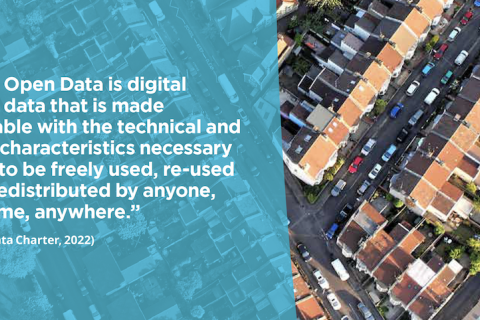Webinar Recap: the Digitization of Land Records: A Panacea for Land Conflicts
Organized by the Cadasta Foundation, Land Conflict Watch, the Land Portal Foundation, National Council of Applied Economic Research (NCAER) of India, and NRMC Center for Land Governance, the webinar "The Digitization of Land Records: A Panacea for Land Conflicts" provided an in-depth look at the critical role digitization of land records plays in addressing land disputes in India.
Exploring the Implications of Supreme Court Ruling on 72,000 Acres of Prime Land in Ghana's Capital: An Analysis of Land Tenure Security
Ensuring secure land tenure is crucial for improving land development, as both local and foreign investors often hesitate to engage in land transactions when there is uncertainty about ownership rights. The term "Land Tenure Insecurity" refers to the apprehension that someone else might claim ownership of the purchased land in the future, creating a significant risk for investment. This phenomenon is particularly common in the Sub-Saharan African Region of which Ghana is no exception. The positive impact of land tenure security is far-reaching.
Unleashing the Data Revolution: Empowering Land Governance through Open Metadata
A new publication titled "The Role of Metadata and Open Data in the Innovation Cycle of Land Administration" puts the spotlight on this dynamic domain. This publication offers valuable insights into the significance of open data and structured metadata, and how they can revolutionize land administration processes worldwide. By delving into the core principles of open data and metadata, this publication offers a comprehensive understanding of how these tools can be leveraged to foster innovation and drive positive change in the land governance sector.
RERA Act can help reduce property disputes by improving title records
The Real Estate (Regulation and Development) Act 2016 which seeks to create a more professional real estate sector and create a level playing field in transactions between developers and homebuyers, has the potential to assist in reducing property related disputes.
How to get displaced Ukrainians back into their housing, land and property quickly
By Yuliya Panfil, Jon Unruh and Michael Cholod
Seven months have passed since Russia invaded Ukraine, displacing more than 13 million people—one-third of the country’s population—and leveling entire towns.
And yet, despite all odds, Ukraine is turning the tide against its more powerful neighbor. Ukrainian forces have staged a rapid counter-offensive, liberating thousands of square miles of territory that displaced Ukrainians are beginning to return to.
Addressing gaps and challenges in SVAMITVA
The celebration of National Panchayati Raj Day marks a redefining moment in the Constitutional history of India to invigorate and strengthen grassroot democracy in the country, through the institution of Panchayati Raj (73rd Amendment) Act, 1992. This day is also remarkable as on 24th April 2020, the Government of India launched a central sector scheme, Survey of villages and mapping with improvised technology in village areas (SVAMITVA). Through implementation of this scheme, GoI aims at formalization of land tenure in the abadi (inhabited) area.
'You Cannot Live Here'
USAID is supporting the government with a strategy to create municipal land offices that manage local land administration campaigns and deliver land titles to rural Colombians
Kenya’s Digitization of Land Records Enhances its Capacity to Monitor and Report Progress on National, Regional and Global Development Commitments
In April 2021, Kenya, through the Ministry of Lands and Physical Planning (MoLPP) and the National Land Commission (NLC) achieved an unprecedented milestone in land management and administration by launching the National Land Information Management System (NLIMS) dubbed Ardhisasa.
Budget 2022: Land Records Modernization 2.0 reforms in India
The Budget 2022 has introduced key reforms in land records management that highlights the adoption of an unique land identification number that in turn will be linked to the National Generic Document Registration System (NGDRS) that aims to adopt a pan-India uniform process for registration of deeds and documents. It will be interesting to see how this top-down land records management 2.0 reforms fits within the constitutional and federal framework of the country and addresses the issues of land administration in India.
The Perceived Conflict Between Open Data and Privacy Concerns in India
The good governance of land is critical to the pursuit of sustainable development. Given that the land sector is often considered to be susceptible to corruption, open and transparent land data is seen as an opportunity to fight corruption. Following global trends, the land sector is increasingly engaging in efforts to make more land and spatial data open and freely available.





